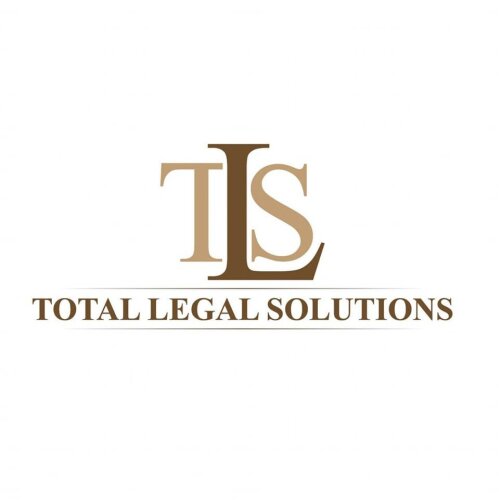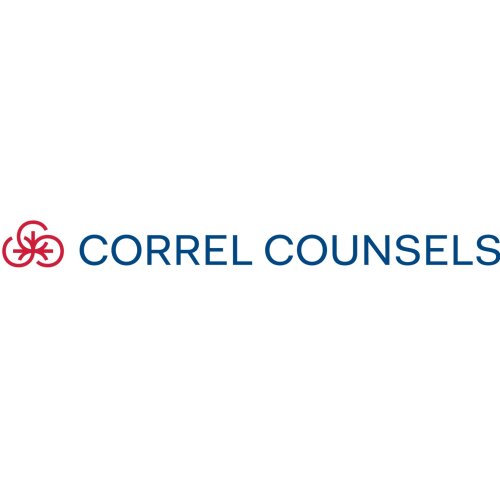Best Energy, Environment & ESG Lawyers in Malé
Share your needs with us, get contacted by law firms.
Free. Takes 2 min.
List of the best lawyers in Malé, Maldives
About Energy, Environment & ESG Law in Malé, Maldives
Energy, Environment, and ESG (Environmental, Social, and Governance) law in Malé, Maldives, is a dynamic field shaped by the country's unique geography, reliance on natural resources, and commitment to sustainable tourism. The Maldives faces special environmental challenges, such as rising sea levels and vulnerability to climate change, which have influenced strict regulations and active government policies in protecting natural resources, promoting renewable energy, and ensuring sustainable business practices. ESG compliance has become increasingly important as international investors and stakeholders demand high standards of transparency, environmental responsibility, and social governance. Understanding these interconnected legal areas is essential for individuals and businesses operating in Malé.
Why You May Need a Lawyer
There are several situations where you might need legal support in energy, environment, and ESG matters in Malé:
- Starting a business or development project that could impact marine ecosystems, reefs, or coastal lands
- Seeking permits for renewable energy projects such as solar or wind installations
- Navigating regulations relating to waste management, emissions, or resource conservation
- Facing allegations of environmental damage or non-compliance with local environmental laws
- Dealing with land use or zoning disputes related to environmental impact
- Preparing environmental impact assessments (EIA) or responding to government review
- Ensuring your business meets ESG criteria for international financing or investment
- Addressing community or stakeholder concerns about projects
- Pursuing or defending claims about environmental harm or breaches of duty of care
- Handling reporting requirements for sustainability, environmental compliance, or ESG disclosure
A lawyer can help you navigate complex permitting systems, comply with national and international standards, minimize legal risk, and advocate for your interests in these matters.
Local Laws Overview
The Republic of Maldives has established a set of laws and regulatory authorities to oversee energy production, environmental protection, and ESG practices. Key aspects include:
- Environmental Protection Act (Law No. 4/93): The core piece of legislation governing environmental matters. It sets rules on pollution control, conservation of resources, and gives government agencies enforcement power.
- Environmental Impact Assessment Regulation: Requires certain projects to undergo detailed environmental reviews before being approved. Developers must submit EIAs, which are evaluated by relevant authorities.
- Renewable Energy Initiatives: The government actively promotes renewable energy projects, especially solar, to reduce dependence on maritime fuel imports and decrease carbon footprints.
- Corporate Social Responsibility (CSR) and ESG Practices: There is increasing emphasis on businesses to adopt socially responsible practices, including reporting on environmental impact, labor standards, and governance structures. International standards such as GRI and UN Sustainable Development Goals are often referenced.
- Climate Change Adaptation and Mitigation: Significant national focus is placed on strategies for coastal protection, waste-to-energy projects, protection of marine life, and resilience building amid climate change.
- Relevant Government Agencies: The Environmental Protection Agency (EPA), Ministry of Environment, Climate Change and Technology, and Maldives Energy Authority are central regulatory bodies.
Any activity in Malé and across the islands that may impact the environment, energy use, or social governance is likely to be regulated, requiring careful legal consideration.
Frequently Asked Questions
What is an Environmental Impact Assessment (EIA) and when is it needed?
An EIA is a study that evaluates the potential environmental impacts of a proposed development or project. In the Maldives, an EIA is usually mandatory for projects likely to affect marine, coastal, or terrestrial environments. The report must be approved by the EPA before the project can begin.
Who regulates environmental matters in Malé?
The Environmental Protection Agency (EPA) under the Ministry of Environment, Climate Change and Technology is the chief regulatory body for environmental issues in Malé.
What penalties can result from breaking environmental laws in Maldives?
Penalties range from fines, project suspension, or even criminal charges, depending on the severity of the violation and the level of environmental harm caused.
Are there incentives for using renewable energy in Malé?
Yes, the Maldivian government offers incentives such as tax benefits, duty exemptions on renewable energy equipment, and technical support for clean energy projects.
Do small businesses need to worry about ESG requirements?
While large companies and those seeking international investment face more scrutiny, all businesses are encouraged to adopt ESG best practices. Some sectors or projects may be legally required to report on certain environmental or governance issues.
Can locals object to a development on environmental grounds?
Yes, public participation is a key part of the environmental review process. Stakeholders and community members can raise concerns during the EIA process, and their feedback must be considered by authorities.
Is plastic waste regulated in Maldives?
Yes, the Maldives has taken significant steps to ban single-use plastics and improve waste management. There are penalties for littering and improper disposal.
How do I ensure my hotel project complies with ESG standards?
You should conduct comprehensive EIAs, follow best practices for waste, water, and energy management, ensure fair labor conditions, and implement strong governance and transparency measures. Legal advisors can guide you through the process and help with needed documentation.
What is the role of the Maldives Energy Authority?
The Maldives Energy Authority regulates the energy sector, including licensing, safety standards, and the integration of renewable energy sources into the national grid.
Do I need a lawyer to file an EIA?
While not always required, legal assistance can help ensure your EIA submission complies with all regulatory requirements, addresses necessary legal concerns, and is less likely to be delayed or rejected.
Additional Resources
If you need more information or guidance in the fields of energy, environment, and ESG, the following Maldivian organizations and bodies can help:
- Environmental Protection Agency (EPA)
- Ministry of Environment, Climate Change and Technology
- Maldives Energy Authority
- Maldives Environmental Lawyers Association
- Maldives Association of Tourism Industry for eco-certification support
- Maldives Investment Forum for ESG and sustainable investment guidance
- UNDP Maldives for resources on climate action and capacity building
You may contact these bodies for guidance, publications, and sometimes even free consultation or referrals.
Next Steps
If you require legal assistance in energy, environment, or ESG matters in Malé, begin by identifying your specific issue or project need. Gather all relevant documents, permits, and correspondence related to your case. Research and connect with a qualified local attorney experienced in these fields; many offer initial consultations to assess your needs. Ask about their specific experience with Maldivian regulation, environmental assessments, or ESG compliance. Prepare a list of your questions and be upfront about your objectives and constraints. Staying proactive and well-informed will help you achieve compliance and support your business or personal goals in the Maldives’ unique regulatory landscape.
Lawzana helps you find the best lawyers and law firms in Malé through a curated and pre-screened list of qualified legal professionals. Our platform offers rankings and detailed profiles of attorneys and law firms, allowing you to compare based on practice areas, including Energy, Environment & ESG, experience, and client feedback.
Each profile includes a description of the firm's areas of practice, client reviews, team members and partners, year of establishment, spoken languages, office locations, contact information, social media presence, and any published articles or resources. Most firms on our platform speak English and are experienced in both local and international legal matters.
Get a quote from top-rated law firms in Malé, Maldives — quickly, securely, and without unnecessary hassle.
Disclaimer:
The information provided on this page is for general informational purposes only and does not constitute legal advice. While we strive to ensure the accuracy and relevance of the content, legal information may change over time, and interpretations of the law can vary. You should always consult with a qualified legal professional for advice specific to your situation.
We disclaim all liability for actions taken or not taken based on the content of this page. If you believe any information is incorrect or outdated, please contact us, and we will review and update it where appropriate.
Browse energy, environment & esg law firms by service in Malé, Maldives
Malé, Maldives Attorneys in related practice areas.
















